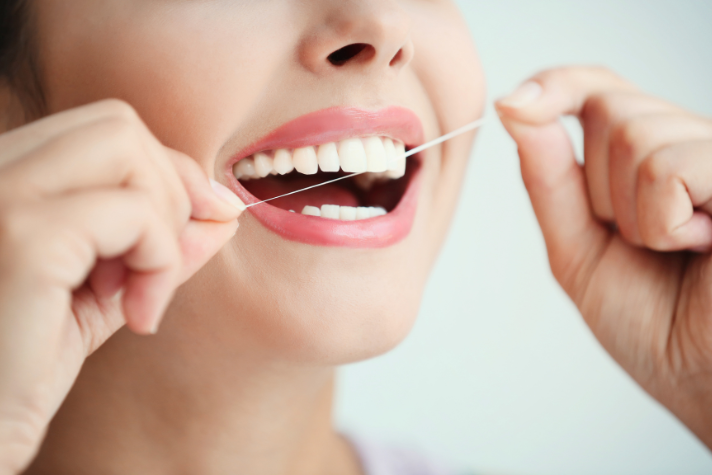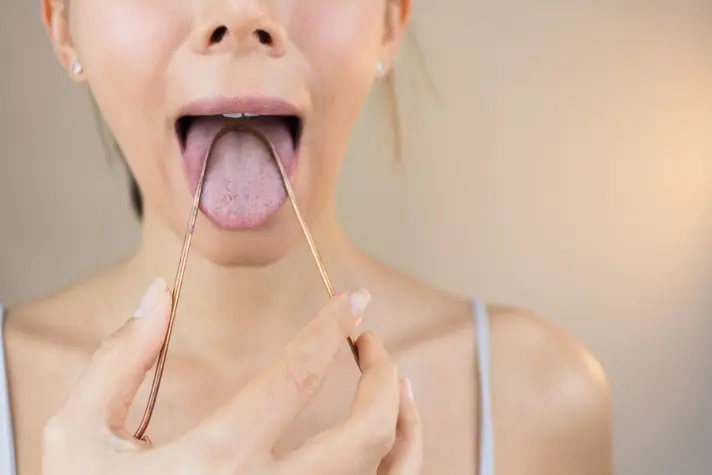
Oral health plays a big role in our overall well-being, yet it’s often overlooked in our daily routines. A healthy mouth not only boosts your confidence with a bright smile but also plays a vital role in preventing various dental and medical issues.
From tooth decay to gum diseases, the consequences of neglecting oral hygiene can be both painful and costly.
Effective Ways to Improve Your Oral Health
This article explores 12 effective ways to improve your oral health, ensuring that your smile remains as healthy as it is beautiful.
1. Brush Regularly and Properly
The cornerstone of good oral health is regular and proper brushing. Dentists recommend brushing your teeth at least twice a day, especially before bedtime, to remove plaque and bacteria accumulated throughout the day.
When brushing, use a fluoride toothpaste and a soft-bristled toothbrush to gently clean all surfaces of your teeth. Don’t rush the process; spend at least two minutes each time to ensure a thorough clean.
However, vigorous brushing can damage your gums, so it’s important to use gentle strokes.
2. Don’t Skip Flossing

Brushing your teeth regularly is vital, but it doesn’t always get rid of all the plaque and food remnants. Daily flossing is key to reaching those narrow areas between teeth and beneath the gum line.
This practice is crucial in thwarting tooth decay and gum disease by eliminating particles that your toothbrush may miss. For those who struggle with standard dental floss, floss picks or interdental brushes can be effective alternatives for more comfortable use.
3. General Dental Care
Maintaining oral health isn’t limited to home care; it also involves seeking professional dental services when necessary.
Regular dental check-ups are essential for early detection and treatment of oral health issues. For specialized care, such as orthodontic treatment, professional services can be invaluable.
If you’re looking for an orthodontist in Philadelphia, you can visit https://www.orthodonticslimited.com/orthodontist-philadelphia-pa/ to find the right fit.
4. Limit Sugary and Acidic Foods

Your diet significantly impacts your oral health. Foods high in sugar and acid, like candies, sodas, and citrus fruits, can erode tooth enamel, leading to cavities.
Limiting these foods and beverages can help preserve your enamel and prevent tooth decay. Focus on a diet that is rich in vegetables, fruits, and dairy products, which can help strengthen your teeth and gums.
5. Drink Plenty of Water
Staying hydrated is not just essential for overall well-being but also a great way to boost your oral hygiene. Drinking water after meals helps rinse away food particles and neutral acids produced by bacteria in your mouth.
It also helps maintain saliva levels, which naturally cleanse the mouth. Fluoridated water, available in many municipal water supplies, can also help prevent tooth decay.
6. Quit Smoking and Reduce Alcohol Consumption

Smoking and excessive alcohol consumption can have severe repercussions on oral health. Smoking contributes to gum disease, tooth discoloration, and, more seriously, oral cancer.
Alcohol, particularly when consumed in excess, can lead to dehydration and dry mouth, reducing saliva flow and allowing bacteria to flourish.
Quitting smoking and moderating alcohol intake are significant steps toward improving your oral health and overall well-being.
7. Use Mouthwash Regularly
Incorporating mouthwash into your oral hygiene routine can provide a significant boost to your oral health. Mouthwash reaches areas of your mouth that brushing and flossing might miss, reducing the level of bacteria and plaque.
It also helps in reducing the risk of gum disease and tooth decay and freshens your breath. Choose a therapeutic mouthwash with fluoride and antimicrobial properties rather than just a cosmetic one that merely masks bad breath. Using mouthwash after brushing and flossing completes the cleaning process for a healthier mouth.
8. Wear a Mouthguard for Sports

If you’re involved in sports or physical activities, especially those with a risk of contact, wearing a mouthguard is a smart preventive measure. A mouthguard protects your teeth from potential trauma, reducing the risk of chipping, breaking, or losing teeth.
Custom-fitted mouthguards from a dentist offer the best protection and comfort, but over-the-counter options are also available for those looking for a more immediate and affordable solution.
9. Be Aware of Teeth Grinding
Teeth grinding, or bruxism can have a detrimental impact on your oral health. It often occurs during sleep, leading to tooth damage, jaw pain, and headaches. If you suspect you’re grinding your teeth, it’s important to consult with your dentist.
Solutions like wearing a night guard can help protect your teeth from the effects of grinding. Managing stress and avoiding hard foods can also reduce the frequency or intensity of teeth grinding.
10. Pay Attention to Your Tongue

Oral hygiene also includes your tongue. Bacteria can accumulate on the tongue, leading to bad breath and impacting overall oral health.
Regularly cleaning your tongue with a tongue scraper or a soft-bristled toothbrush can remove this bacterial buildup. This simple practice can improve your oral hygiene and contribute to fresher breath.
11. Consider Your Overall Health
Your oral health is closely linked to your overall health. Conditions such as diabetes, heart disease, and osteoporosis can affect your oral health, and vice versa. For example, gum disease has been linked to heart disease and can affect blood sugar control in people with diabetes.
Be mindful of your overall health and understand how it could impact your oral hygiene. Regular medical check-ups and sharing your medical history with your dentist can help in managing these interconnected health aspects.
12. Educate Yourself about Oral Health
Staying informed about oral health is a good way to stay on top of the best practices. With the volume of information available, it’s important to seek reliable sources to understand the best practices in oral hygiene, the latest in dental care, and common dental problems and their solutions.
Educating yourself empowers you to make informed decisions about your oral care and to ask the right questions during your dental visits.
Conclusion
In conclusion, maintaining good oral health is an integral part of your overall well-being. From flossing and using mouthwash to understanding the connection between your overall health and oral hygiene, every step is essential in building a strong foundation for dental health. Adopt these practices into your daily life, stay informed, and enjoy the lifelong benefits of a bright, healthy smile.
About The Author:
Stacey Smith is a freelance health writer. She is passionate about writing about women’s health, dental health, diabetes, endocrinology, and nutrition and provides in-depth features on the latest in health news for medical clinics and health magazines.

![[Orthodontic Treatments] How They Improve Your Oral Health? Orthodontic Treatments](https://www.safeandhealthylife.com/wp-content/uploads/2021/10/Orthodontic-Treatments-150x150.jpg)


